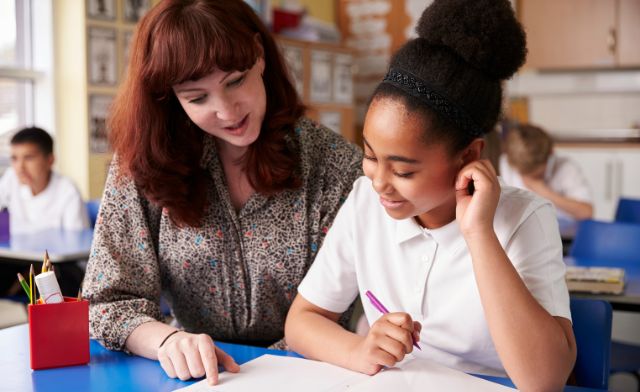Estyn highlights the need for stronger collaboration between primary and secondary schools to support pupil transition

Schools need to work together more effectively to ensure that pupils make more consistent progress as they move from primary to secondary school, according to a new report by Estyn. The report, Transition and pupil progression, looks at how well schools work together to support pupils’ learning and well-being during this crucial transition phase.
This new report highlights that while schools are largely successful in supporting pupils’ well-being during induction arrangements, they often struggle to ensure that pupils’ learning continues smoothly as they move from primary to secondary education.
The report finds that a minority of school clusters have begun to develop a clear, shared understanding of learning progression, for instance by forming groups of teachers to review pupils’ work. However, these initiatives are still in the early stages and have not yet had a strong impact on improving the continuity of learning between primary and secondary schools.
School leaders have identified challenges, such as coordinating the work of multiple primary schools with a single secondary school, different interpretations of the curriculum, and not having enough time or resources to work together effectively. The report notes that while all-age schools (which teach pupils from ages 3 to 16) have the potential to provide a continuous learning experience, a minority still treat primary and secondary phases separately instead of as a unified experience.
Despite these challenges, the report highlights examples of good practice where some clusters of schools have successfully mapped out what pupils should know, learn and experience across areas of learning and experience. It also shows how clusters are beginning to use this to support pupil progression between primary and secondary schools.
Owen Evans, His Majesty’s Chief Inspector, said:
“Our report shows that while schools are making efforts to support pupils as they transition from primary to secondary education, more needs to be done to ensure a smooth learning experience. Strengthening cooperation between schools is essential to help pupils continue to progress in their learning as they move from one stage to the next.
“It is heartening to see that Welsh Government already acknowledge this, with the announcement in July that they will introduce simplified, easy to access support to help schools plan their curriculum.
We hope this report encourages school leaders, local authorities, and the Welsh Government to take further action to improve transition strategies. By working together, we can make sure pupils get the support they need to succeed throughout their education.”
The report includes several recommendations for school leaders, local authorities, and the Welsh Government. These include clusters working more closely to ensure that approaches to information sharing, teaching, and the curriculum support pupils to develop knowledge, skills, experiences and learning behaviours progressively from 3 to 16 years old, and providing more training opportunities to support collaboration between schools. It also offers practical tools and examples of good practices to help schools improve their transition processes and ensure that pupils continue to develop effectively as they move from primary to secondary school.